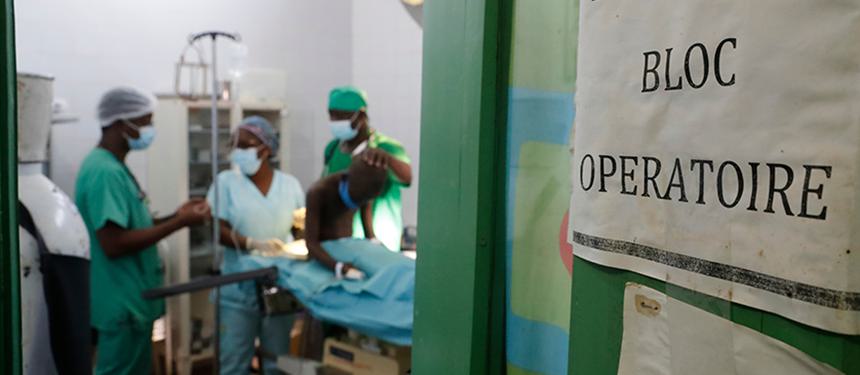Medical capability in resource-poor environments

Illness and injury are an unavoidable element of life, affecting every individual globally. All communities - no matter how big or small, how wealthy or poor, how urban or rural – can suffer. And so they need some way of handling patients.
There are two main approaches for tackling the medical needs of any population: prevention and treatment. Since medical cases are guaranteed to arise, prevention focuses on reducing frequency and severity of illness or injury, and treatment focuses on delivering effective care to manage illness or injury.
What do we mean by 'resource-poor'?
The term ‘resource-poor’ does not apply exclusively to developing nations. Lack of resources can be temporary due to disrupted supply chains, or it can be a more permanent status. Locations may be defined as resource-poor due to logistical challenges such as isolation, security challenges such as conflict, lack of infrastructure or even lifestyle and cultural influences.
Medical risks are prevalent everywhere. While life expectancy may be undeniably lower in many resource-poor environments, particularly those in the developing world, this does not mean to say that they are completely at the mercy of disease and sickness.
But with varying quality or availability of basic medical care, alongside destination-specific risks such as venomous snakes or tropical disease to dangerous driving standards - knowing what medical provisions are available can help a traveller to appropriately prepare should they fall unwell.
Advice for travellers to resource-poor environments
Typically travellers from wealthier nations have stronger immune systems and sufficient nourishment, putting them on the front-foot when visiting a resource-poor environment. Preventative vaccinations and medications should be sought prior to travel, where available, to lessen the risk of contracting any prevalent disease.
It’s important to undergo a medical screening examination prior to travel to a resource-poor environment to identify any pre-existing conditions that may pose a greater risk to health at the destination. Diseases which result from longer-term exposure tend are less of a concern to short-term business travellers.
It is advisable that travellers receive appropriate training prior to travel, such as safe water usage or mosquito bite prevention where it’s relevant. They should have an understanding of the local and supplementary medical provisions available to them, and know what to do should they have a medical concern or medical emergency. Organisations may choose to commission a medical emergency response plan for remote projects, so that in the event of an incident, medical issues can be handled in the most efficient and effective manner.
If a traveller experiences a medical incident in a resource-poor environment, even if they make a full recovery, it is always advisable to seek further review at a suitable medical facility to ensure that appropriate treatment was provided at the time and to obtain any follow up care where required. Patients are encouraged to inform their GP of any medical events which happen while travelling so that any necessary follow ups can be undertaken and any lapses in care can be addressed.


